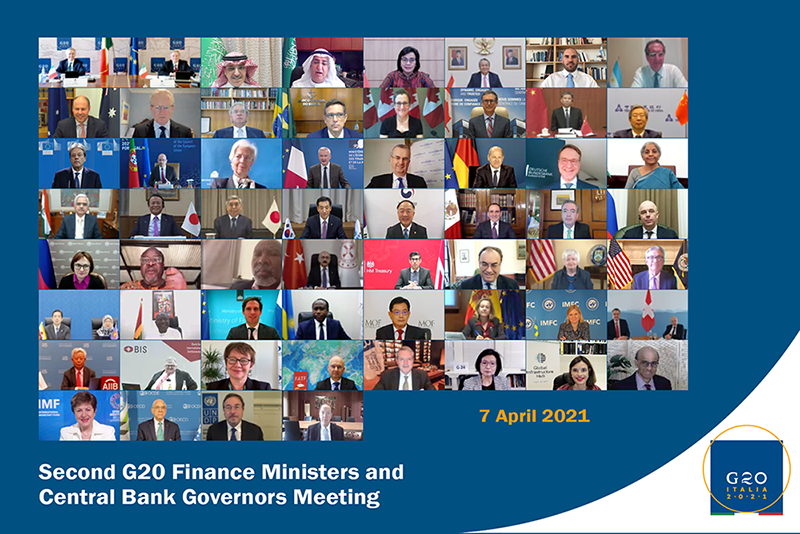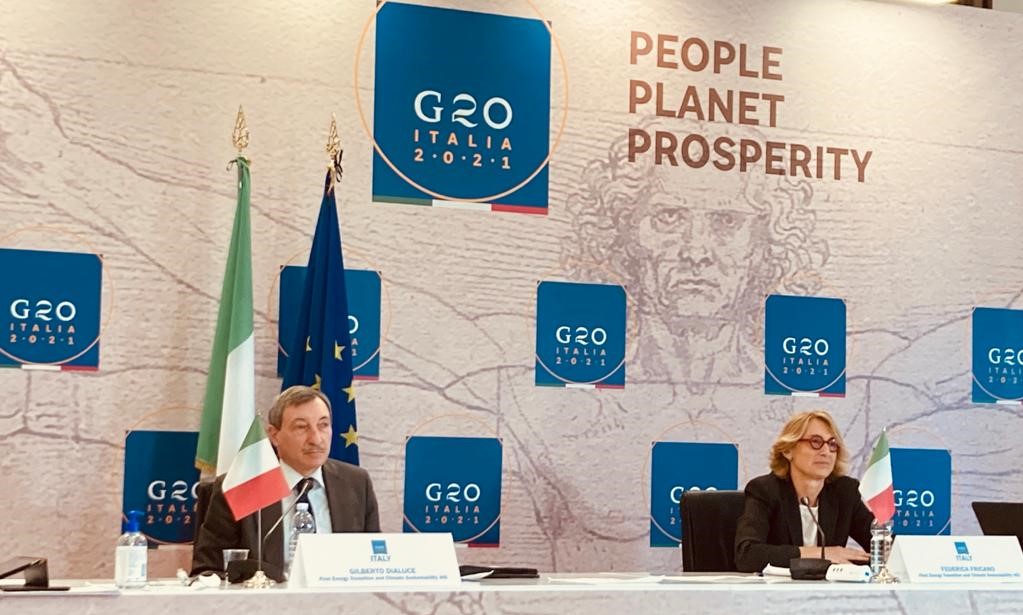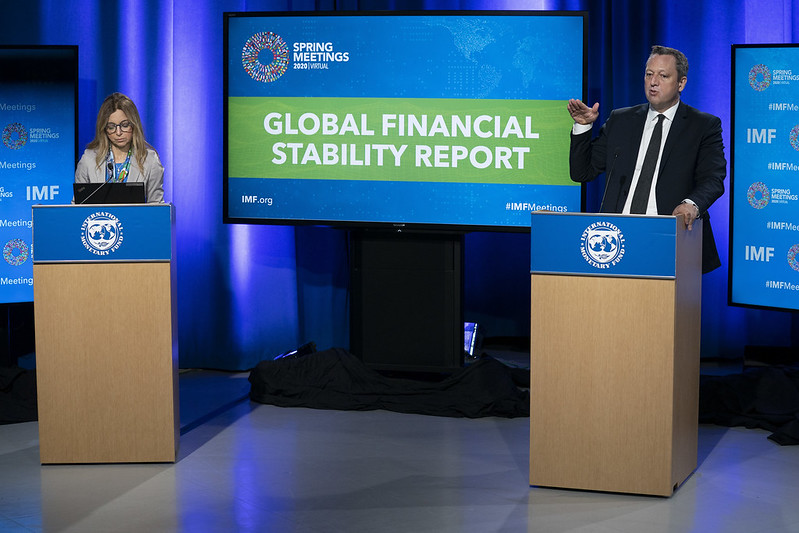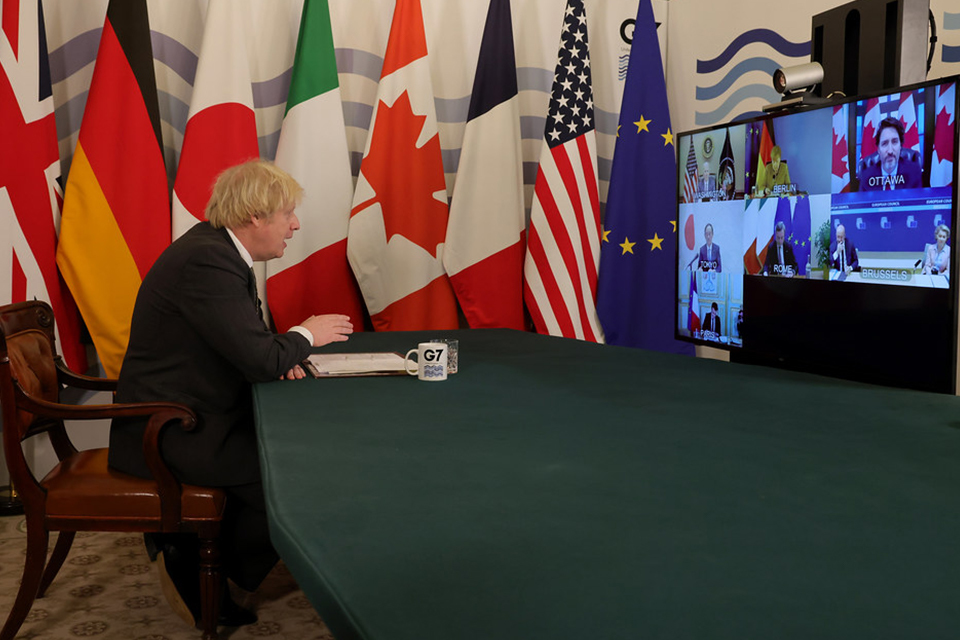As world leaders come together in a promised effort to finally tackle the Climate Crisis, many critical events related to climate & environmental policy are taking place this year. As we slowly begin to recover from the COVID-19 pandemic that has swept the globe, the need to plan a recovery that focuses on just Climate Action is incredibly important. As crucial as individual actions are, we cannot achieve a sustainable future without systemic change and policies that reflect the challenges people – especially those on the frontlines – face. Therefore, international forums and gatherings are absolutely essential in order to figure out concrete steps to achieving appropriately ambitious objectives.
Of these events, the UN’s Conference of Parties (COP26) in November is undoubtedly the most well known; but there are many others coming up, all throughout the year. With all these crucial events taking place, it can be challenging to keep track of what is actually going on. To help you with that, we will give you a brief overview of the most important ones.
The imf spring meeting
The IMF (International Monetary and Financial Committee) held a spring meeting from Monday, April 5, through Sunday, April 11, 2021. The main topics discussed were “issues of global importance” such as Climate Change, vaccine aid effectiveness and poverty eradication. This event took place virtually, and, in order to accommodate for the time differences between countries, some events took place outside the principal week of the Spring Meetings.
The participants included central bankers, ministers of finance and development, private sector executives, representatives from civil society organizations and academics. 2800 delegates from member states (list can be found here), including “350 observer organization representatives, 800 members of the press, and 550 accredited civil society members” also participated.
At the time of writing this article, no concrete outcome has been announced. We strongly hope that the IMF puts Climate Justice at the core of its discussion and comes up with concrete policies to tackle the economic impacts of the Climate Crisis.
Biden global leaders climate summit
Furthermore, on the 22nd and 23rd of April, the Joe Biden Administration (president of the United States) will be hosting a Global Leaders Climate Summit in order to discuss the growing urgency of combating the Climate Crisis. The first day of the summit also coincides with Earth Day, and marks the 5th anniversary of the opening of the Paris Agreement for signature.
The Summit will bring together 17 nations that are collectively responsible for 80% of global CO2 emissions and global Gross Domestic Product (GDP). In addition, the Biden administration has invited other nations with strong and innovative action towards Climate Change or those that are impacted more severely (MAPA- Most Affected People and Areas -countries). In total, leaders of 40 different countries have been invited to participate.
The aim of this summit is to address the economics and urgency of Climate Action. In particular, the benefits of Climate Action to a nation’s economy will be spotlighted; along with the importance of keeping global warming under 1.5 degrees Celsius. The summit will be streamed live for public viewing, and is supposed to represent the Biden administration’s commitment to concrete climate plans. Since the COP26 UN Climate Conference is coming up in November later this year, this summit is of critical importance. The United States of America and President Biden have the opportunity to set a strong precedent, which we hope will be followed by concrete and sufficient action.
g7 Leaders’ summit
The G7 Leaders’ Summit will also be taking place from 11-13 of June this year, in Carbis Bay, Cornwall; and its main aim is a successful, green recovery from the COVID-19 pandemic.
According to the SDG Knowledge Hub, the seven G7 countries are Canada, France, Germany, Italy, Japan, the United Kingdom and the United States, and the summit will be chaired by the UK. The European Union will also be represented, and will be participating as a guest. Additionally, the UK has invited leaders of Australia, South Korea, South Africa and India to attend as guests. According to the official G7 website, these eleven countries together represent 60% of the populace living in democracies worldwide and 2.2 billion people – over half of the global economy.
The G7 Leaders’ Summit will emphasise sustaining the earth’s biodiversity and taking on the climate crisis; along with promoting “free and fair trade” and “globally shared values”. The G7 countries have a variety of policy priorities, including a goal to protect 30% of the world’s lands and oceans by 2030 (as of 2018, only 14.9% of the world’s land and 7.3% of the Earth’s oceans are “formally protected”, according to National Geographic). Their priorities also include supporting global development, food security, sustainable development financing and several more, as the world rebuilds from the COVID-19 pandemic. During the summit, attendees will draw from the advice and expertise of various engagement groups – namely, Women 7, Youth 7, Business 7, Civil Society 7, Labour 7 and Science 7.
g20

G20 Finance Ministers and Central Bank Governors (FMCBG) will gather virtually, on Wednesday 7 April 2021, for the second G20 Finance Track ministerial meeting under the Italian G20 Presidency. This will precede the annual G20 Leaders’ summit of 2021, which will be held on the 30th and 31st of October in Rome, Italy.
Among the G20 members are: Argentina, Australia, Brazil, Canada, China, France, Germany, Japan, India, Indonesia, Italy, Mexico, Russia, South Africa, Saudi Arabia, South Korea, Turkey, the United Kingdom, the United States, and the European Union and several others. Spain is also invited as a permanent guest.
The economic and finance focused portion of this meeting will be taking place on July 9-10. The Environment, Climate, and Energy portion will be taking place on July 22-23. Their priorities for the outcomes of this meeting are focused around three key words: People, Planet and Prosperity.
In the Planet part of the statement, one of the main priorities of this meeting is to facilitate a “transition towards renewable energies and a green recovery, with a focus on modern, “smart cities”. The G20 aims on working on “new tools for sustainable urbanization, on energy efficiency, on improved, modern mobility”, paving the way toward the 26th Conference of Parties.

As for the People part of the statement, the outcome of this meeting plans to shape a “sustainable, just, inclusive and resilient recovery” from the COVID-19 and climate crises, with policy actions centered around people. It also seeks to tackle inequality by “protecting the most vulnerable, above all young people, precarious workers, small and medium enterprises; promoting women’s empowerment; ensuring universal access to education; redistributing opportunities within countries and decreasing disparities between regions”.
During this meeting, Italy will join hands between the Climate Sustainability Working Group and the Energy Transition Working Group. The ETWG, in particular, will focus on the future of sustainable cities, on smart grids and innovative clean technologies, amongst issues of efficiency and circularity. To achieve these goals, the CTWG will leverage not only on national public resources, but also on global financial flows progressively aligned in support of the objectives of the Paris Agreement.
Environment and climate change will represent “one of the three pillars of the Italian Presidency’s G20 agenda” in a year when the president of this meeting, Italy, will be co-chairing the COP26 with the UK. Therefore, the G20 Environment Deputies Meeting (EDM) will focus on facilitating the work of the Environment Ministers, as well as laying the groundwork for the relevant segments of the Leader’s Summit. The EDM will also focus on the protection of biodiversity and on the concepts of sustainability and environmental well-being, including in urban areas.
Climate change adaptation, resilience and nature-based solutions are also central elements of this approach. As Frances Fox, a climate justice activist based in the UK said –

“2021 is a key year for climate action because COP26 is coming up in November and governments who signed the agreements have to renew their pledges. So it’s a real chance for tangible change at the national and global level to be made.”
– Frances Fox, from Fridays for Future International
When asked about her opinion on the policies being worked upon, Frances said – “they should definitely be prioritizing the planet. It’s really important that policy makers think in the long term, with recovery plans, rather than in the short term.” She also thinks that there needs to be actual step-by-step plans towards achieving the commitments governments have made. In her words – “some are saying ‘Net Zero by 2030’ […] but how are you going to get to zero emissions – you just saying that you’re going to do this, how are you going to do this? It’s like saying ‘I’m going to win the Olympics!’ without actually having any kind of plan about how you’re going to train for it.”
After all the events happening this year, it is more vital than ever that world leaders begin treating the climate- and ecological crisis like a crisis; and move from words to action by making concrete plans in order to secure a liveable future.



